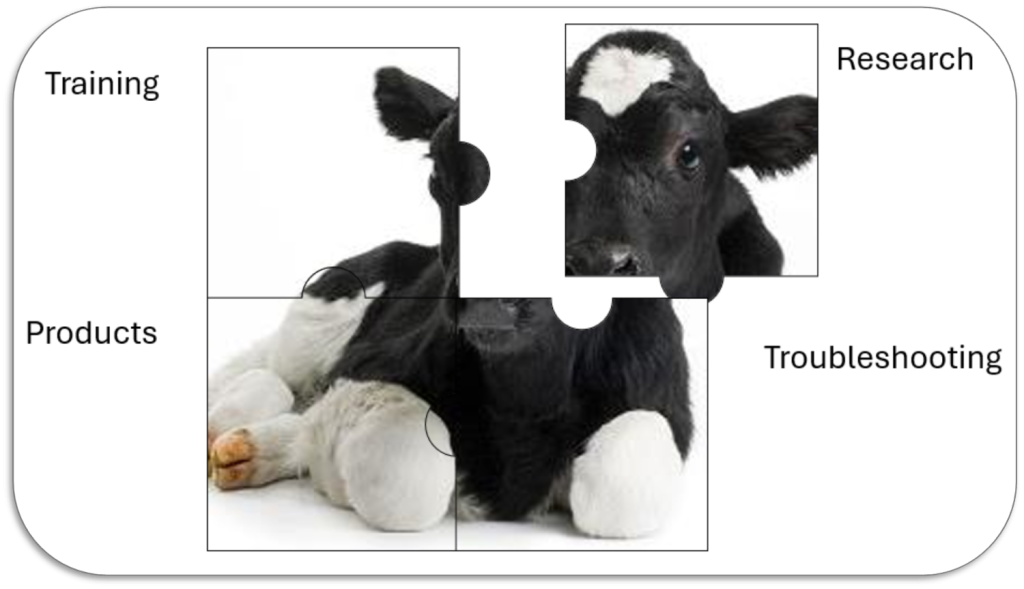Research
Calf Notes Consulting can provide expertise and experience to support your calf research program.

Throughout most of Dr. Quigley’s career he was involved in the systematic investigation to discover secrets of the biology of the young calf, and the application of knowledge into improved methods of calf feeding and management. Researh in young calves has been and always will be “his first love”.

Research is by nature organized and thought through carefully prior to any animal feeding or management. The requirements to do research well – statistical designs, power calculations, randomization, etc. – are more demanding as expectations increase that research must be done well.
Careful organization of research protocols is followed by consistent execution. Of course, with calves, not everything goes as planned, so contingencies are always factored into a research design. Data and samples are collected and handled precisely so key information is captured from samples and stored in the proper databases. Once collected, data are carefully evaluated to eliminate errors and outliers. The data are then submitted to the proper statistical models to determine differences, if any, among the treatments applied. Finally, the statistical results are summarized and put into the context of existing information and inferences are made. It’s a long, involved process that requires diligence and discipline. Jim has more than 40 years of understanding this process and he can assist you with yours.
Many people consider the most important part of research to be when animals are “on the ground”. However, I think the organization of a research trial is actually the most important. In many of my manuscript reviews for various research journals, I’ve seen well conducted but poorly designed studies – often at great expense – be rejected for consideration because of a fatal flaw in the research design. Too few animals. Incorrect statistical designs and analysis. Erroneous assumptions in the design.
With a great wealth of experience in calf research, Dr. Quigley is uniquely suited to assist your team in developing and improving your research program.
“The way to do research is to attack the facts at the point of greatest astonishment.”
– Celia Green
Click the link below to discuss your research needs.
Dr. Quigley has been a researcher in the area of calf nutrition, health,and management since his M.S. program in the early 1980’s. His first refereed journal article, in the Journal of Dairy Science is still referenced today as an important contribution to our understanding of rumen development. Since then, he has published more than 120 articles in numerous refereed journals.

Since then, Jim has worked in the following research areas:
- Colostrum feeding
- Colostrum supplement and replacer formulations
- Post-day 1 feeding of antibodies
- Milk replacer ingredients and formulations
- Rumen development
- Calf health feed additives
- Weaning strategies
- Mathematical models of intake and rumen development
- Heifer body condition
- Protein requirements of growing heifers
- Invited reviews of calf management and dry cow management
- Calf physiology at birth
If it’s related to calves and calf research, it’s likely that Jim has conducted research in a similar area. His breadth and depth of experience in calf research is rivaled by few consultants in the industry.
Click the link below to discuss how Jim can assist your research program.
“Nothing has such power to broaden the mind as the ability to investigate systematically and truly all that comes under thy observation in life.”
— Marcus Aurelius